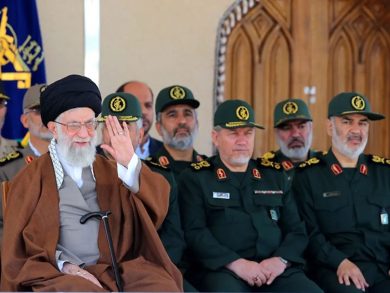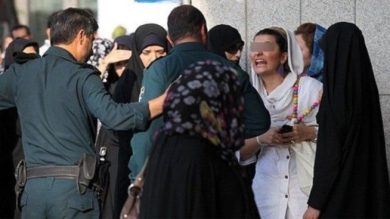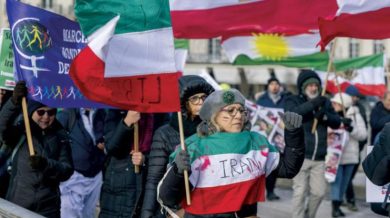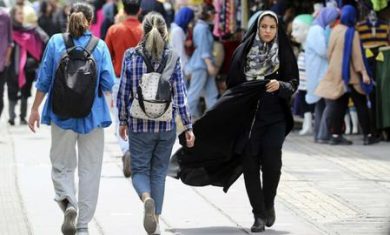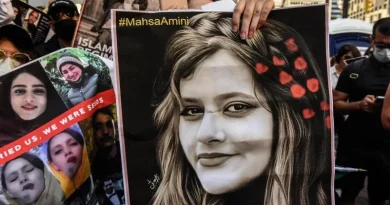For decades, the Islamic Revolutionary Guard Corps (IRGC) has operated beyond Iran’s borders—not only funding armed groups or exporting ideology, but also pursuing, intimidating, and attacking Iranians in exile. From surveillance and cyber harassment to kidnapping plots and assassinations, the IRGC’s transnational repression has turned peaceful activists, journalists, and academics into targets simply for speaking the truth.
The Iranian diaspora has long played a crucial role in advocating for human rights, amplifying protest movements, and organizing campaigns to expose the regime’s abuses. But this activism comes at a cost. As resistance to the regime has grown louder abroad, so has the IRGC’s effort to silence it—wherever it lives.
This article exposes the IRGC’s strategies for targeting the diaspora, profiles key cases, examines the tools they use, and outlines what governments, organizations, and citizens must do to fight back.
1. Why the IRGC Targets the Diaspora
A. Control the Narrative
The IRGC views exiled activists as a threat to the regime’s legitimacy. Those who speak freely in democracies can:
• Expose internal abuses and corruption
• Rally global pressure on Iran
• Inspire resistance at home
Silencing these voices means preserving the regime’s façade of control.
B. Undermine Movements Like “Woman, Life, Freedom”
Diaspora networks play a vital role in sharing protest footage, organizing solidarity rallies, and lobbying for international action. The IRGC sees them not as civilians, but as enemies of the state.
C. Maintain Fear Beyond Borders
By threatening or harming dissidents abroad, the regime sends a clear message: you are never safe, and we can reach you anywhere.
2. Tactics of Transnational Repression
The IRGC employs a broad toolkit to silence and control diaspora Iranians. These methods fall into several categories:
A. Surveillance and Monitoring
• Operatives infiltrate Iranian community spaces (mosques, universities, cultural centers)
• Protest attendees are photographed and identified
• IRGC uses embassy staff and front organizations to gather intelligence
B. Digital Harassment and Cyberattacks
• Hacking of phones, emails, and social accounts
• Smear campaigns and deepfakes
• Disinformation to discredit or intimidate activists
• Phishing attacks disguised as academic or journalistic outreach
C. Threats Against Family Members in Iran
• Intimidation of relatives
• Coerced “pleas” from parents to stop activism
• Retaliatory arrests of family members to exert pressure
D. Kidnapping and Assassination Plots
• Sophisticated operations to lure, abduct, or kill targets
• Use of criminal intermediaries, surveillance teams, and false identities
• Some attempts foiled by foreign intelligence; others succeed
3. Notable Cases of IRGC Targeting Abroad
A. Masih Alinejad (United States)
A U.S.-based journalist and women’s rights activist, Masih Alinejad has been a vocal critic of Iran’s mandatory hijab laws and IRGC repression.
IRGC Attempts:
• 2021 Kidnapping Plot: FBI disrupted a plot to abduct her and smuggle her via Venezuela to Iran
• 2022 Assassination Plot: IRGC-linked operatives arrested in Brooklyn for planning to kill her at her home
• Cyberattacks: Her phone and family’s communications hacked multiple times
Despite this, she continues her advocacy, becoming a global symbol of resistance.
B. Ruhollah Zam (France)
The journalist behind Amad News, Ruhollah Zam exposed IRGC corruption and helped organize protests.
• 2019: Lured to Iraq under false pretenses
• Abducted by IRGC, smuggled to Iran
• Executed in 2020 after a show trial
His case shocked the international community and revealed the IRGC’s ability to operate through foreign soil.
C. Assadollah Assadi (Austria/Belgium)
An Iranian diplomat in Vienna, Assadi planned a 2018 bombing of an opposition rally in Paris attended by thousands.
• Supplied explosives to operatives in Belgium
• Used diplomatic immunity to transport materials
• Arrested and sentenced to 20 years in prison
This case proved that Iranian embassies often serve as extensions of IRGC Intelligence.
D. Germany, UK, Canada: Ongoing Cases
• German and UK authorities have disrupted IRGC-linked plots to attack Jewish sites and Iranian exiles
• Canada is home to several activists under threat, with confirmed surveillance by regime operatives
• In Sweden and the Netherlands, exiled dissidents have been assassinated under mysterious circumstances widely believed to involve IRGC agents
4. The Role of IRGC Fronts and Proxies
To mask its operations, the IRGC uses front organizations, dual-use institutions, and proxies.
A. Embassies and Cultural Centers
• Many “cultural attachés” are IRGC intelligence officers
• Events hosted at mosques or Iranian centers can be used for surveillance or propaganda
B. “Religious Outreach” and Student Groups
• Funded through IRGC-backed charities and academic exchanges
• Used to monitor and recruit sympathizers
C. Hezbollah and Quds Force Operatives
• Often subcontracted to carry out plots in Europe and Latin America
• Provide logistics, false identities, and safe houses
5. Digital Warfare: The IRGC’s Cyber Reach
The IRGC’s cyber units, particularly APT34 (OilRig) and APT42, are specialized in:
• Spear-phishing campaigns against activists and NGOs
• Deploying spyware in fake apps (e.g., VPNs, calendar tools)
• Discrediting opponents with fake social media accounts
• Conducting surveillance through compromised devices
These operations often coincide with disinformation campaigns intended to confuse or discredit victims.
6. Psychological Toll on Activists
Transnational repression doesn’t just threaten lives—it wears down the soul.
Common Impacts:
• Fear of being followed, hacked, or killed
• Isolation due to safety concerns
• Survivor’s guilt, anxiety, and PTSD
• Self-censorship to protect loved ones
Activists are often forced to limit their public work, avoid travel, and even move residences multiple times.
7. Legal and Political Responses: Progress and Gaps
A. What Some Governments Are Doing
• U.S.: Full IRGC terrorist designation, criminal prosecutions, financial sanctions
• Germany & France: Arrests of operatives, increased surveillance of Iranian networks
• Sweden: Trials of regime-linked officials under universal jurisdiction
B. What Is Still Missing
• Canada, UK, and EU have not fully designated the IRGC as a terrorist entity
• Lack of coordination between countries makes tracking networks difficult
• Protection of dissidents is inconsistent and often reactionary
8. What Civil Society and Citizens Can Do
A. Pressure Governments to:
• Fully designate the IRGC as a terrorist organization
• Expel diplomats and shut down IRGC-linked institutions
• Provide asylum and security to high-risk activists
B. Support At-Risk Individuals
• Donate to legal defense and cybersecurity funds
• Share verified threats with international media
• Assist with safe housing and relocation if possible
C. Educate and Mobilize
• Spread awareness of transnational repression
• Organize events or campaigns spotlighting targeted activists
• Build coalitions across nationalities—because this is a global issue
9. Building Legal Cases: Justice Without Borders
Activists and lawyers are pursuing universal jurisdiction cases against IRGC officials for crimes including:
• Assassination
• Torture
• Surveillance
• Terrorist financing
Gathering evidence, preserving testimony, and documenting digital threats are essential steps toward future trials.
10. A Global Pattern of Repression
The IRGC’s tactics are not unique. They resemble playbooks used by other authoritarian regimes like:
• Russia (targeting dissidents in the UK and Germany)
• China (surveillance of Uyghurs abroad) • Saudi Arabia (murder of Jamal Khashoggi)
Iran fits squarely within a growing pattern of transnational authoritarianism—and must be addressed as such.
Conclusion: Safety Is Not a Border
The IRGC wants to silence truth with fear. But with every plot it attempts, it exposes its desperation. The more activists are targeted, the more powerful their voices become.
The Iranian diaspora is not alone—and the world must prove it.
Join Our Newsletter!
Stay informed with the latest updates, news, and ways to take action in the fight for justice and global security. Sign up now to get updates delivered straight to your inbox!

